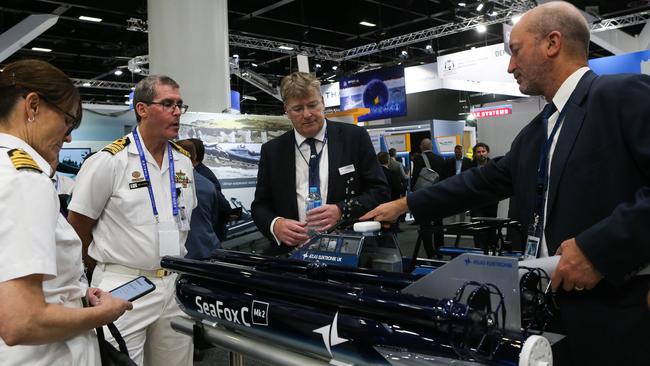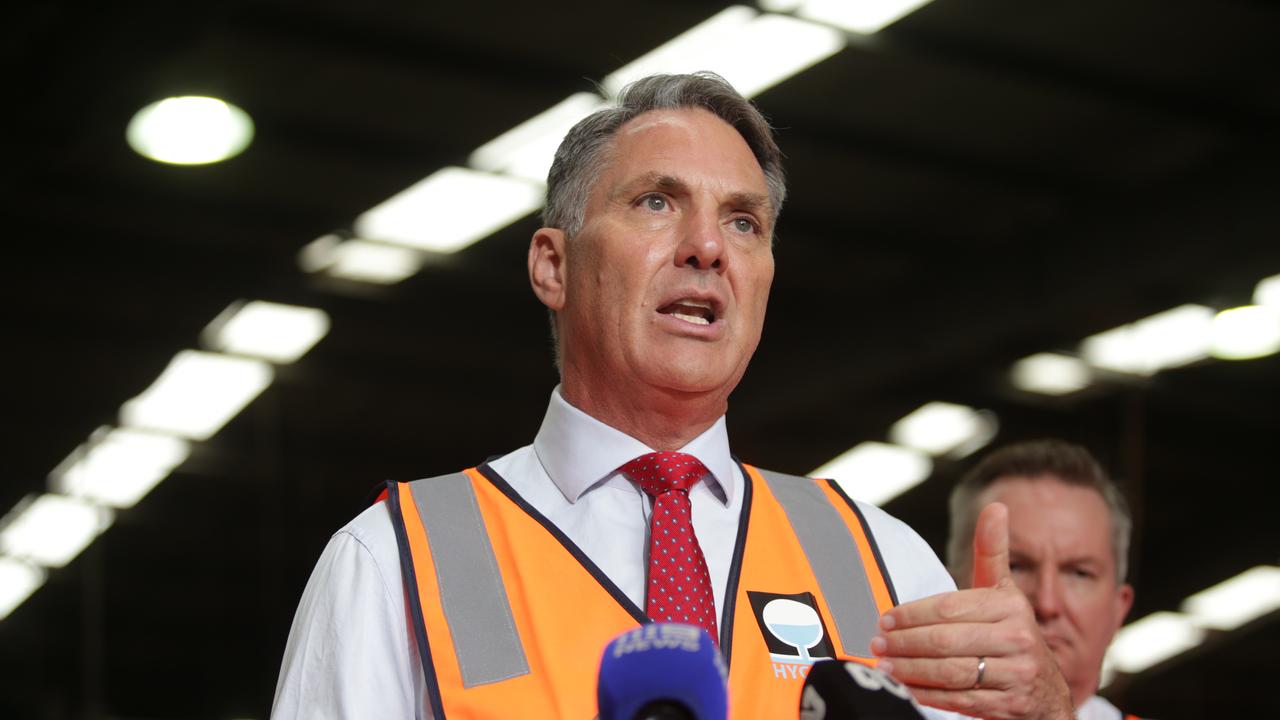Defence ‘faces uphill battle’ to find and retain skilled personnel for advanced capabilities
Defence says it is ‘not a competitive employer’ and it is facing an uphill battle to find and retain the skilled personnel it needs.

Defence says it is “not a competitive employer” and it is facing an uphill battle to find and retain the skilled personnel it needs to deliver advanced new capabilities, including nuclear-powered submarines, guided missiles and advanced cyber and space systems.
In its incoming government brief to Defence Minister Richard Marles, the department called for a salary boost for non-uniformed personnel and flagged a comprehensive review to improve the Australian Defence Force recruitment and retention.
It said further reforms were also needed to create a more “inclusive” ADF culture, including the strengthening of programs to prevent sexual misconduct.
The brief, obtained under Freedom of Information legislation, was delivered ahead of an ADF recruitment drive scheduled for later this year, and a navy-specific campaign targeting the next generation of submariners and sailors.
It said workforce pressures in Defence were growing as historic-low unemployment raised salary expectations for those with emerging technology and specialist skills.
“Paradoxically, Defence is not a competitive employer. When competing for a limited pool of experienced staff, we often lose out,” the incoming government brief said. “These workforce shortages are being felt more directly in key workforce segments across the enterprise such as engineering, intelligence, communications and cyber.”

The brief said workforce growth would be needed “across a range of new capabilities such as nuclear-powered submarines, AUKUS advanced capabilities, Space Command, guided weapons and national naval shipbuilding”.
It said the successful delivery of the AUKUS partnership could also not come at the expense of other critical capability programs.
“Defence requires expert personnel and some of the most talented leaders Australia has to offer to manage these programs,” the report said.
The incoming government brief said salaries for Defence public servants had fallen to one of the lowest levels across the bureaucracy, and “stronger remuneration outcomes are required in addition to the other measures being pursued”.
Defence was relying “on other elements of the employee value proposition” to attract new recruits and employees, including the provision of clear career paths and education and training.
The brief said the proportion of women in the ADF had grown to 20.1 per cent from 13.8 per cent in 2012, but the prevalence of sexual misconduct remained a problem, with reports of sexual assault increasing in 2020-21.
Labor has backed Defence’s plan to lift its permanent workforce by 18,500 by 2040, but Defence said the plan was coming off a low base, with slower recruiting and higher-than-expected separation rates in the previous 12 months resulting in a workforce that was “below approved levels”.
At the same time, Defence’s external army of consultants, contractors and other outsourced workers rose by 22 per cent in the two years to March 2022.

Defence Personnel Minister Matt Keogh said the upcoming recruitment drive would focus on the career prospects and lifestyle offered by the ADF, and target those who wanted to contribute “to something bigger”.
It will include a television program for high school-aged children with an interest in science, technology, engineering and mathematics, which the producers say will “address misperceptions that the ADF is an employer of brawn over brains”.
Mr Keogh said the nation’s “incredibly tight recruiting market” was making it difficult for Defence to hold on to skilled personnel.
“If you're a diesel mechanic in Defence, you’re ripe for the picking and they’ll offer back a tonne of money,” he said.
“One of the things we need to look at is how do we make the overall offer competitive against who were competing against.”
He said the recruitment campaigns would aim to counter “perception gaps” about the sort of lifestyle people could expect when they signed up.







To join the conversation, please log in. Don't have an account? Register
Join the conversation, you are commenting as Logout